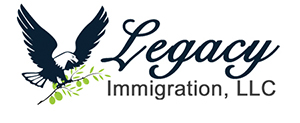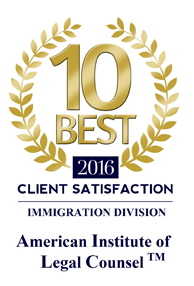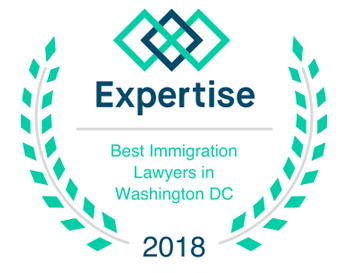H-3 Trainee Visa

When we explain the H-3 Trainee Visa to our clients, many of them are unaware that such a visa exists. The H-3 Trainee Visa has several benefits such as no minimum education, allows for remuneration, no quota (unless under the Special Education Exchange Visitor category) an initial approval of two years. In addition, the spouse and children may obtain H-4 status. In order to obtain H-3 classification, the U.S. employer or organization must file a Form I-129, Petition for Nonimmigrant Worker.
The H-3 Trainee Visa category allows foreign nationals to receive instruction and training (other than graduate medical education or training) in the U.S. for up to two years. The training must be one “that is not designed primarily to provide productive employment.” USCIS does not want the trainee to perform work that an H-1B beneficiary would perform.
The purpose is for the foreign national to obtain training in the U.S. that they can use to pursue their profession in their home country. Each trainee must demonstrate nonimmigrant intent by having an un-abandoned residence in a foreign country. To this end, the requirements are the following:
- The proposed training is not available in the foreign national’s native country;
- The foreign national will not be placed in a position which is in the normal operation of the business and in which U.S. citizens and resident workers are regularly employed;
- The foreign national will not engage in productive employment unless such employment is incidental and necessary to the training; and
- The training will benefit the beneficiary in pursuing a career outside the United States.
The core of the H-3 petition revolves around the training in the U.S. There is a higher likelihood of success for an H-3 petition if the purpose of the training is to prepare the foreign workers for tasks outside the U.S that will benefit the U.S. employer. In our last H-3 visa application, the petitioner employed less than 10 full-time employees and did not have a training program in place (and had never filed an H-3 visa petition before). The beneficiary had a medical background and advanced degree in the medical field. The training program was in in healthcare management which he would return and implement in his native country.
Frequently Asked Questions
There are many reasons why USCIS might deny an H-3 petition. A few reasons include:
- Program lacks details regarding schedule, objectives, or means of evaluation;
- Program is incompatible with the nature of the petitioner’s business or enterprise;
- Beneficiary already possesses substantial training and expertise in the proposed field of training;
- The training is in a field in which it is unlikely that the knowledge of still will be used outside the U.S.;
- The training will result in productive employment beyond that which is incidental and necessary to the training;
- Program is designed to recruit and train foreign nationals of the ultimate staffing of domestic operations in the U.S.;
- Program does not establish that the petitioner has the physical space and sufficiently trained manpower to provide the training specified; or
- Program is designed to extend the total allowable period of practical training previously authorized (if a nonimmigrant student).
An H-3 Trainee who has completed two years of training may not have his or her status extended or changed or be readmitted to the U.S. with another H or L visa unless he or she has resided outside the U.S. for at least six months. However, trainees whose training time in the U.S. is intermittent and/or does not reach an annual aggregate of at least six months are not subject to the two-year limitation on training.
The “Special Education Exchange Visitor” category is subject to a numerical cap of 50 and is limited to an 18-month stay. A petition requesting an H-3 “special education exchange visitor” must be filed by a facility which has professionally trained staff and a structured program for providing education to children with disabilities, and for providing training and hands-on experience to participants in the special education exchange visitor program.
The petition must be filed by facility that has professional, trained staff and a structured program for children that provides training and hands-on experience. If in the U.S. for 18 months under H or L status, the foreign national cannot seek to change or extend status or obtain readmission under H or L categories unless he or she has resided and been physically present outside of the U.S. for the immediate prior six (6) months.
A hospital approved by the American Medical Association (AMA) or the American Osteopathic Association (AOA) for either an internship or residency program may petition to classify a student attending a medical school abroad as an H-3 trainee, if the alien will engage in employment as an intern during his or her medical school vacation.
Nurses may obtain H-3 visas if they have an unrestricted license in the country where they received the medical education, or if the education was obtained in Canada/U.S., and the petition proves that the nurse is qualified to receive the training under state law.
How We Can Help
- Work with petitioner to prepare training program from scratch to establish the foreign national’s activities, an explanation of the training, and that the foreign nationals’ work will not be part of the normal operations of the petitioner’s business
- Assist petitioner with describing how the U.S. company is benefited by providing the training, how the trainee will be benefitted in pursuing a career outside the U.S., and the reason why the training cannot be obtained in the foreign national’s home country
- Work with petitioner to produce documents that relate petitioner’s business to the training program, petitioner’s ability to provide the training, and that the trainee will not be performing “productive employment”
Contact Us
Please give us a call to discuss your case. In-person consultations are available Monday through Friday from 8:00 am to 8:00 pm and Saturdays from 8:00 am to 5:00 pm. Please call our office at 301-529-1912 , text us, submit a request for consultation form below.
Please be sure to provide a timeline of events along with details of your entire immigration history.









